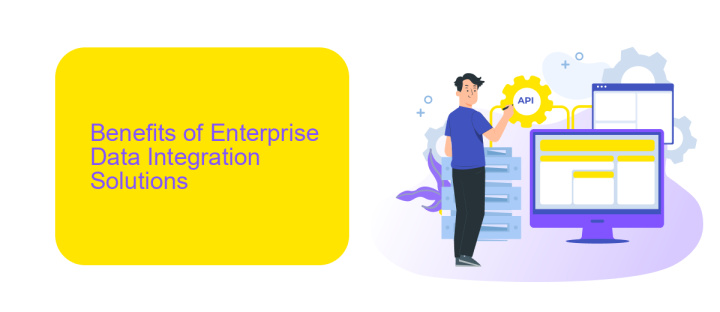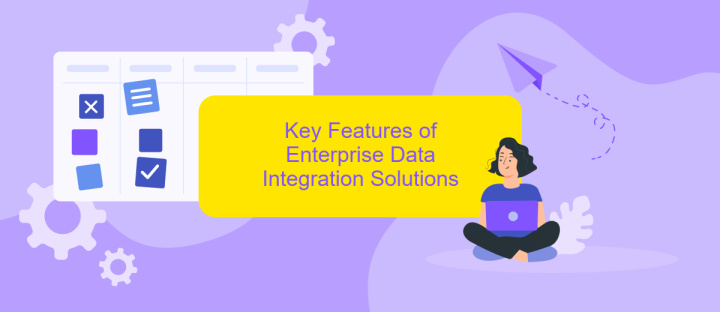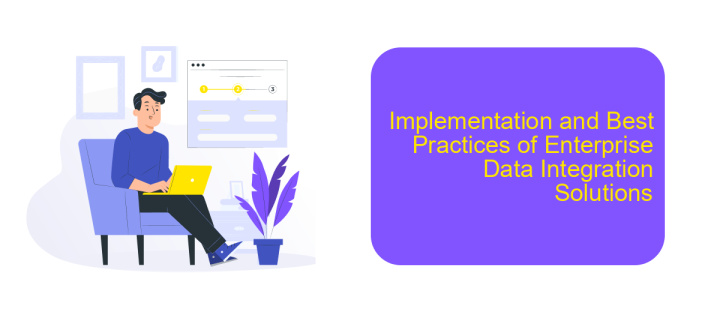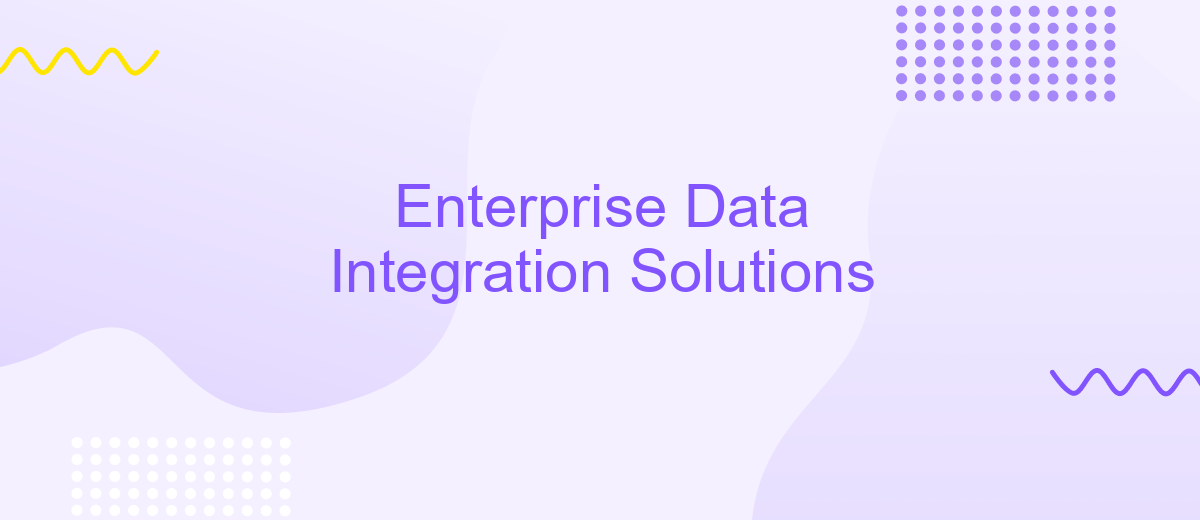Enterprise Data Integration Solutions
In today's data-driven world, enterprise data integration solutions are essential for organizations seeking to harness the full potential of their data. These solutions enable seamless connectivity between diverse data sources, ensuring that information flows efficiently across systems. By integrating data, businesses can achieve greater insights, streamline operations, and make more informed decisions, ultimately driving growth and innovation.
Introduction
In today’s data-driven world, enterprises face the challenge of integrating vast amounts of data from various sources. Effective data integration solutions are crucial for ensuring seamless data flow, enhancing decision-making processes, and maintaining data integrity. These solutions enable businesses to consolidate data from disparate systems into a unified view, facilitating better analysis and reporting.
- Streamlined data management
- Enhanced data quality and consistency
- Improved decision-making capabilities
- Reduced operational costs
One such solution is ApiX-Drive, a powerful tool that simplifies the integration process. ApiX-Drive allows enterprises to connect different applications and automate data workflows without the need for extensive coding. This not only saves time but also ensures that data is consistently up-to-date across all platforms. By leveraging tools like ApiX-Drive, businesses can achieve more efficient and reliable data integration, driving better business outcomes.
Benefits of Enterprise Data Integration Solutions

Enterprise Data Integration Solutions offer numerous benefits, including streamlined data management and enhanced operational efficiency. By consolidating data from various sources into a unified system, businesses can ensure data consistency and accuracy, reducing the likelihood of errors. This integration enables real-time data access, which is crucial for making informed decisions quickly. Additionally, it simplifies the process of data governance and compliance, ensuring that all data handling practices meet regulatory standards.
Another significant advantage is the ability to automate workflows and improve collaboration across departments. Tools like ApiX-Drive facilitate seamless integration by connecting different applications and services, allowing data to flow effortlessly between systems. This not only saves time but also reduces the need for manual data entry, minimizing the risk of human error. Moreover, such solutions are scalable, making it easy for businesses to expand their data integration capabilities as they grow. Overall, enterprise data integration solutions provide a robust framework for managing data efficiently and effectively.
Key Features of Enterprise Data Integration Solutions

Enterprise Data Integration Solutions are essential for businesses aiming to streamline their data processes and enhance operational efficiency. These solutions offer a variety of features that cater to the diverse needs of modern enterprises.
- Data Connectivity: Seamlessly connect to multiple data sources, including databases, cloud services, and on-premises systems.
- Data Transformation: Convert data into the required format for analysis and reporting, ensuring consistency and accuracy.
- Real-time Integration: Enable real-time data synchronization across various platforms, ensuring up-to-date information.
- Scalability: Easily scale the solution to accommodate growing data volumes and increasing user demands.
- Security: Implement robust security measures to protect sensitive data during integration processes.
- User-friendly Interface: Utilize intuitive interfaces like ApiX-Drive to simplify the setup and management of data integrations.
These key features make enterprise data integration solutions indispensable for businesses looking to optimize their data workflows. By leveraging tools like ApiX-Drive, companies can efficiently manage their integrations, thus driving better decision-making and overall growth.
Implementation and Best Practices of Enterprise Data Integration Solutions

Implementing enterprise data integration solutions requires a strategic approach to ensure seamless data flow across various systems. Start by assessing your organization's specific needs and identifying the data sources and destinations. This will help in selecting the right tools and technologies that align with your business objectives.
Next, develop a comprehensive integration plan that outlines the steps and resources needed for successful implementation. This includes setting up data governance policies, establishing data quality standards, and ensuring data security. Utilizing services like ApiX-Drive can simplify the integration process by providing automated workflows and real-time data synchronization.
- Conduct a thorough needs assessment and identify key data sources.
- Select appropriate integration tools and technologies.
- Develop a detailed integration plan with clear objectives.
- Implement data governance and security measures.
- Utilize automation tools like ApiX-Drive for efficient data flow.
Regular monitoring and maintenance are crucial to ensure the ongoing effectiveness of your data integration solutions. Continuously evaluate the performance of your integrations and make necessary adjustments to adapt to changing business needs. By following these best practices, organizations can achieve a cohesive and efficient data ecosystem.
Conclusion
In conclusion, enterprise data integration solutions are essential for organizations looking to streamline their operations and enhance data accessibility across various platforms. By implementing these solutions, businesses can ensure that data is consistently accurate, up-to-date, and readily available for decision-making processes. The integration of diverse data sources not only improves operational efficiency but also provides a comprehensive view of the organization's performance, enabling better strategic planning and execution.
Tools like ApiX-Drive play a crucial role in simplifying the setup and management of data integrations. With its user-friendly interface and robust features, ApiX-Drive allows businesses to automate data flows between different systems without the need for extensive technical expertise. This not only reduces the time and resources required for integration but also minimizes the risk of errors. Ultimately, leveraging such services can significantly enhance an organization's ability to respond to market changes swiftly and maintain a competitive edge.
FAQ
What is Enterprise Data Integration?
Why is Enterprise Data Integration important for businesses?
What are the common challenges in Enterprise Data Integration?
How can automation tools help in Enterprise Data Integration?
What should I consider when choosing an Enterprise Data Integration solution?
Do you want to achieve your goals in business, career and life faster and better? Do it with ApiX-Drive – a tool that will remove a significant part of the routine from workflows and free up additional time to achieve your goals. Test the capabilities of Apix-Drive for free – see for yourself the effectiveness of the tool.

